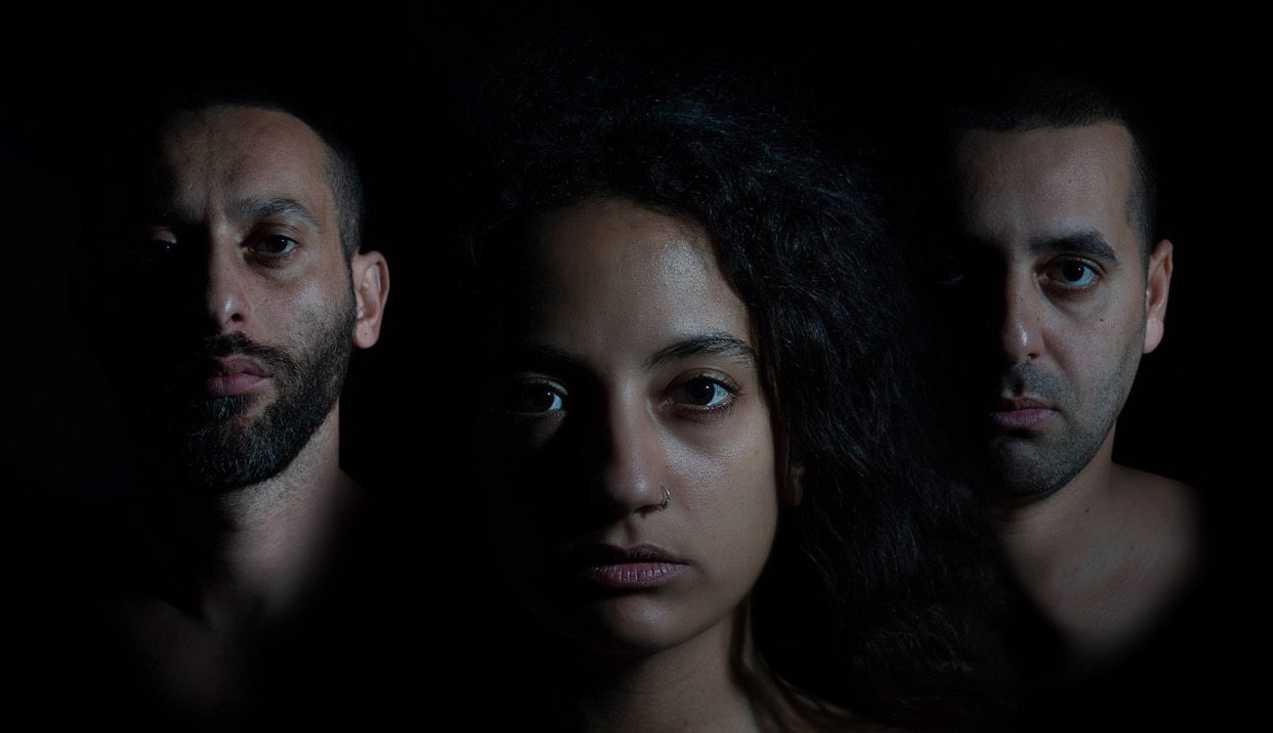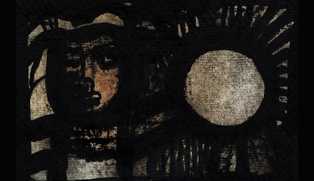Courtney Yusuf: How was it writing hip-hop bars instead of melodic vocals for the new album?
Maysa Daw: When I write with DAM, it’s always straight. Yes, you have metaphors but when you say something people understand exactly what you mean. When I do my other music, singing melodies, I don’t always care too much if people can understand exactly what I’m saying because the type of music allows for it. But with hip-hop you have to be much more straightforward. As you have more words you can go deeper and deeper and write exactly what you mean. Luckily I had the most amazing two writing partners, Tamer [Nafar] and Mahmood [Jrere]. They’re on another level and really know how to make sentences shorter and sharper. We wrote everything on this album together.
CY: Were any female rappers particular influential on your writing?
MD: I love Lauryn Hill and Erykah Badu. When I was writing this album, I was looking to them for inspiration, to find a way to express whatever I was finding hard. By reading their lyrics without the music, I went much deeper into what they’ve written.
CY: Any there any particular pressures as an artist that come with being a woman and a Palestinian?
MD: I think for me, it really took me a long time to understand the responsibilities that I hold in my personal life. Whether I want them or I don’t, it doesn’t matter. To myself, I’m just a person making music, and growing up I just wanted to make music in the most romantic way. Stuff that crosses borders. But for the rest of the world I’m a Palestinian woman making music. I’ve sometimes been invited to shows abroad where they didn’t even know my songs but booked me just because of that fact. I used to think this was a really annoying thing but at some point it became something that I really appreciate. It’s really fucked up. I appreciate performing and the power that DAM has – the energy and the message that we can give. As romantic as it may sound, I think it’s something that is really magical. We are not here to satisfy. We do break taboos. We do talk about things.
You know, in the song ‘Real Enough’ [from the new album] there’s this part where I say that I aim for equality between men and women and for women’s rights, but that I do sometimes use being a woman to get what I want. Even if it’s to get this or that, or book a show. Equality is what I really believe in, but if I’m being real – I do sometimes use it to get my way.
CY: It’s often reported that you once received some particularly strong, conservative male opposition to a performance of yours. How would you like that incident to be understood?
MD: This story is very specific and the one and only time that I really experienced it. We had a show together – me, Walaa Sbeit, and Bruno Cruz – down in the Jordan Valley. We were in this program called Freedom Bus and on the last night there was a show. There were a few people on before us. I remember one woman who was not Palestinian. I can’t remember where she was from but she was singing and it was really beautiful. Then I got up on stage with Bruno and Walaa. After one song, the older men of the village started threatening that if we didn’t get off stage they were gonna break it and cut the electricity. They just wanted us to stop.
You know, the funny thing is, I kind of understand where it comes from. I don’t agree with it at all but I cannot say that this is wrong. It’s just a different mentality. It was a really small village, and to be there and start fighting people? That’s not a thing that I would do.
CY: The spoken word track ‘Jasadik Hom’ (‘Your body of Theirs’) that ends the new album, what is it about and who is it for?
MD: I’m kind of speaking to myself whilst at the same time speaking to a lot of people. It talks a lot about the body. The chief inspiration was ‘Between the World and Me’ by Ta-Nahesi Coates. He talks a lot about what it means to live in a black body in the US. For you, you’re just growing up and doing what you do, but for the rest, they look and see a black body. I really felt connected to that. I’m living in the body of an Arab woman. This spoken word piece describes in particular the life of a Palestinian woman who is living here and holding an Israeli ID. There have always been situations – like crossing the border through Qalandia [a major checkpoint along the Separation Barrier/ the Wall that separates Jerusalem from Ramallah in the West Bank] – when I walk there and the Arab men look at me differently, and then the Israeli soldiers look at me differently. At some point you feel as though you don’t belong to anyone. On the one hand there’s this feeling of wanting to talk about it and make people understand, but at the same time you find yourself saying: ‘‘Put yourself away! This body is mine. This breast is mine. These birthmarks are mine and it has nothing to do with you!” The piece describes the situation that we go through where you always have to prove yourself or be aware of what you’re doing or what you’re saying. You have to be careful and always realise that whatever you do has a lot more consequences than if a Jewish woman or an Arab man does it. But this doesn’t just apply specifically to a Palestinian. It describes something experienced by pretty much every woman out there.
CY: What would you say to people starting out?
MD: There are no rules but for women in the industry at the moment, you need to realise what it is that you’re worth. It’s such a hard thing to do. In the reality that we are living in, you are always put under the pressure of being someone and doing something and looking a certain way. The moment I started releasing these things, knowing what suits me and what doesn’t suit me, and just accepting myself – and I’m really lucky to have so many people to help me understand this – this is where the magic starts. It took me so long to be able to love myself and my body. Only then can you realise what the steps are to reach where you want to reach.



